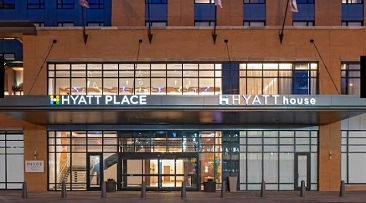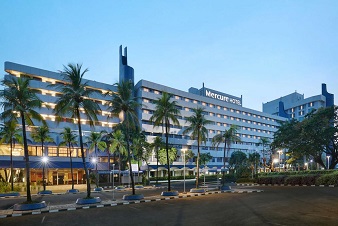NATIONAL REPORT—When people think of hotels, they envision either luxury vacation destinations or necessary places to rest while traveling on business. However, hotels represent a far more vital force in the economy of the locations they serve. Obviously, hotels draw tourist traffic which goes on to patronize local businesses, but they can do much more.
Some hotels lead the way when it comes to sustainable innovation. Others take charge of balancing the needs of local merchants with those of the tourists they serve. Here are five ways hotels can work to boost their local economy.
1. Bringing Jobs to the Area
One powerful way hotels can boost local economies is by bringing jobs to the area. Luxury hotels hire an average of 20 staff members for every 10 rooms available for rent, and even 3-star establishments average eight employees for every 10 rooms.

While many hospitality jobs start at the low end of the pay scale, those who learn the industry stand to make significant salaries. Managers at luxury establishments often earn more than six figures per year. Many full-time staff members enjoy generous benefits, and even part-time employees often receive perks such as free or discounted stays at member locations.
For example, the Hyatt Place and Hyatt House hotel recently brought 75 jobs to downtown Indianapolis. Human resources team member Marlee Sumpter states the only requirement for hire is a positive attitude—they can teach any other skills. For residents nearby, especially those lacking transportation, the opening brings opportunity.
2. Sourcing Food Locally
Hotels with restaurants can provide a major boost to local agriculture by sourcing their foods locally. Sourcing food locally benefits guests as well.
When food is grown nearby, it arrives at the kitchen fresher. Trucks do not need to drive long distances, reducing the amount of carbon emissions. Guests benefit from enjoying amazing meals, the flavor of which cannot be paralleled by frozen food delivery systems.
The Settler’s Inn at Bingham Park sources local food to create innovative seasonal menus. Sourced from the farms and pastures surrounding the Pocono, Pa., resort, the hotel restaurant offers unique fare for brunch through dinner.
3. Innovating Sustainable Design
Green design is a popular force in architecture, given its positive impact on finances, conservation and resident experience alike. In the hospitality industry, sustainable design helps surrounding communities reduce their reliance on nonrenewable energy and generate local jobs in green industries.
Some hotels have led the way when it comes to reducing their carbon footprint, creating a model for programs delivering both business and community results. One such hotel is Villa Punta De Vista in Costa Rica. The property generates its own solar energy on-site through the use of 12 panels. They then focus on conserving resources with the use of smart thermostats in every room, reducing energy use when guests leave. Furthermore, bathrooms have low-flow toilets, and only LED and CFL lighting illuminates the establishment.
4. Giving Local Merchants Shop Space
Even the smallest hotels often feature pop-up shops or gift shops, and allowing local merchants to display their wares within benefits the economy greatly. Many small entrepreneurs find themselves priced out of retail locations at malls and outdoor shopping venues. Hotels can offer space more cost-effectively by charging a commission on products sold to reduce monthly rental prices.
Guests appreciate shopping local and supporting indigenous artists. This creates a stimulus to the economy as artisans who may otherwise labor in obscurity get exposure in hotel shops. And sourcing local products means less shipping and fewer air-choking emissions.
Groups such as the Lionesque Group help hoteliers even in remote locations establish pop-up shops featuring local merchants. For example, they work with 11 Howard, a boutique hotel located in New York’s Soho neighborhood. The group outfits pop-up stops for stays as remote as yurts in the Bolivian Andes.
5. Supporting Ecological Tourism

Eco-tourism refers to travel which respects the natural environment of a region as well as the local culture. Hotels play a major role in supporting eco-tourism efforts. For example, many hotels feature pamphlets with local tours and attractions available in the area in their lobbies. By choosing to display only flyers from tour groups which embrace sustainability, hotels can influence where guests spend their dollars and help ensure they’re spent responsibly.
Hotel staff also can recommend activities which benefit the local ecosystem. For example, they may refer visitors to a special cleanup project on a local beach or a run/walk to raise awareness for a specific cause, such as planting trees at a nearby park. Furthermore, hotels can partner with local restaurants and merchants and give referrals to those who give back to the local economy.
For example, the Mercure Convention Center in Centre Ancol, Jakarta, makes donation activities, education programs and representation in the local community part of their mission. They invite local heroes to special events, organize blood drives three times per year and donate leftover food to poor communities.
Hotels Help the Local Economy Thrive
Hotels offer far more than a place for travelers to rest their weary heads. The right hotel benefits the local economy in multiple ways. If you’re a hotelier, take tips from the above to make your destination more friendly for guests and locals alike.






